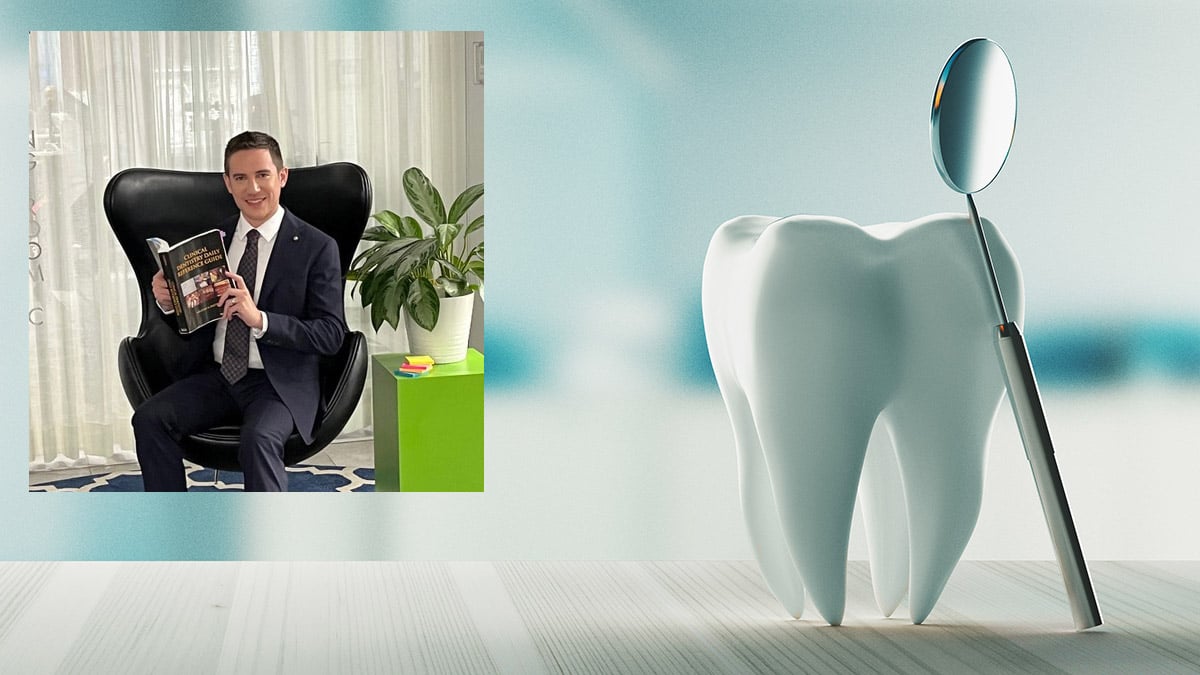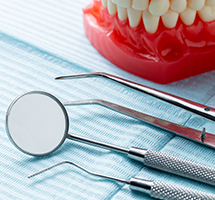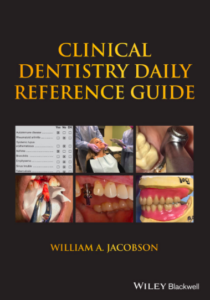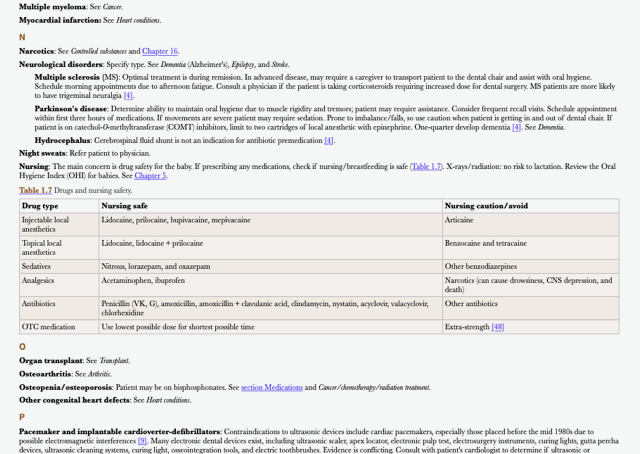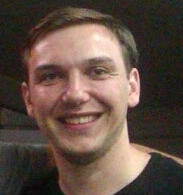Last Updated on May 1, 2024 by Laura Turner
Dr. William Jacobson, dentist, dental school faculty, and author of the Clinical Dentistry Daily Reference Guide, spoke with the Student Doctor Network about his experiences working in community clinics and as a faculty member.
Tell us about yourself.
William Jacobson, DMD, MPH: My name is William Jacobson. I go by Dr. Jacobson or Dr. J. I’m a general dentist, educator, and author.
I completed my Doctor of Dental Medicine (DMD) and Master of Public Health (MPH) in 2015 at Case Western Reserve University School of Dental Medicine. After dental school, I completed a one-year General Practice Residency at the University of Southern California. Since then, I’ve practiced at Federally Qualified Health Centers (i.e., community clinics) since 2016, taught at dental schools part-time, and did some curriculum consulting. I’m now a full-time Assistant Clinical Professor at the University of Maryland School of Dentistry. I also published a book, Clinical Dentistry Daily Reference Guide, to help dental students and dentists.
How did you learn Spanish?
I was raised bilingual, speaking Spanish with my mother and English with my father. I am so grateful for this, as it has helped me to communicate with my Spanish-speaking patients and to help them feel comfortable at their dental visits.
When did you first decide to become a dentist? Why?
In middle school, I had braces. I was fascinated with all the instruments and changes occurring in my mouth. My orthodontist was the nicest guy (shout out to Dr. Kieffer in San Diego, CA). He was able to make a living working with his hands, improving patients’ smiles and bites, and in his free time, he would surf. I always enjoyed using my hands as an artist, and I also enjoyed physiology, so I saw this as a way of combining art and science.
What information/advice do you wish you had known when you were a pre-dental student?
The tough part is not over after the prerequisites. Dental school is a marathon, and it does not end there. Dentistry and medicine are ever-evolving, and you must make a commitment to be a lifelong learner. You get out what you put in, and there is no substitute for experience.
This is not a job; it is a profession. Make sure this is the right career choice for you. It is a huge commitment with regard to finances and time. Financially, research costs of schools. Look at the salary-to-student debt ratio. Find out how much of your salary goes to taxes. Timewise, undergrad is four years, dental school is four years, specializing is another two to six years, and paying off the student debt can take another 10 + years.
Talk to people in the field and find out the pros and cons of the profession, what a typical day looks like, and see if these align with your interests, values, and personality before entering dental school.
What was dental school like?
Dental school was a very intense four years, and each year had its different set of challenges. It was also a time of remarkable growth on a personal and professional level.
The first year was a huge transition from undergrad. Dental school was 40 hours weekly (8:00 AM to 5:00 PM). The first two years involved a tremendous amount of studying and lab work. The curriculum consisted of multiple science classes at a time, learning about dentistry, and practicing on mannequins. The third year, we entered and began working on patients full-time. I was also studying for the national board exam. In my fourth year, I was trying to complete all my clinical requirements to graduate and was also busy applying to residencies and going to interviews.
What surprised you the most about dental school?
How detailed-oriented dentistry is. When you are drilling on teeth, you must follow specific criteria, and every half millimeter is significant.
Any advice for dental students?
When you start treating patients, “learn from every patient encounter.” This was my mantra as a dental student and as a dentist. This approach has helped me to grow as a clinician and to care for my patients, and I believe it will help you, too. A patient may ask you a question that you don’t know the answer to, or you may ask yourself a question while treating the patient. When this occurs, seek out knowledge. This could be in the form of researching articles, paging through textbooks, or reaching out to professionals (e.g., dentists, specialists, pharmacists). By taking the initiative, you will build upon your knowledge over time, and the more you know, the better clinician you will be.
Why did you decide to do a General Practice Residency (GPR)?
If you want to be a general dentist, after graduating from dental school, you can begin to practice dentistry. Another option is to pursue a General Practice Residency (GPR) or an Advanced Education in General Dentistry (AEGD). I completed a GPR because I wanted to learn how to treat medically compromised patients. This was a hospital-based additional year of training. I worked on patients who were sedated in the operating room, treated patients undergoing radiation and chemotherapy, treated veterans at the Veterans Affairs (VA), had a special needs rotation, oral surgery rotation, and more. This year prepared me to treat patients in the “real world” with complex medical histories. People are living longer but not necessarily healthier lives, and as a dentist, it is important to know what treatment modifications to make when treating these patients.
What was your first job out of dental school?
I worked as a Locum Tenen dentist. This means temporarily taking the place the dentist when the dentist is not available (e.g., dentist is away on maternity leave, dentist resigned). I lived in hotels and had an opportunity to work at different clinics. I even received job offers at these clinics and ended up working at one.
Why did you decide to work at community clinics, instead of going into private practice?
I went on a long job search and explored private practices, corporate offices, prisons, community clinics, and I found that community clinics aligned most with my values. I was able to diagnose and treat disease (vs. selling treatment) and help vulnerable populations that were truly in need. This was meaningful to me. Later, I found out that the benefits were fantastic and that there were also loan forgiveness incentives.
Has being an dentist met your expectations? Why?
Being a dentist has been more complex, challenging, fascinating, and rewarding (emotionally, intellectually, socially) than I could have ever expected.
How has your MPH played a role in your career?
My MPH program gave me a new perspective on healthcare. I learned about the importance of disease prevention, barriers to accessing healthcare, how to conduct research in the community, promote health, interpret data, come up with solutions, and present these findings. I believe my MPH also set me apart, making me a stronger candidate for future roles, such as becoming a Dental Director of a clinic, and being promoted in academia from Instructor to Assistant Clinical Professor.
What do you like most and least about being a dentist?
I’ve worked at community clinics treating the underserved since 2016. It is rewarding to help the underserved. I’ve seen a lot. People terrified of the dentist, people coming in after not being able to sleep for the past two nights from dental pain, 20-something year-olds that need dentures, people struggling with substance abuse, people struggling with severe depression leading to neglecting their oral hygiene, people experiencing homelessness, people struggling with comorbidities, and more. I enjoy being a source of compassion and improving people’s lives with my knowledge and skill set.
My least favorite part is how physically taxing dentistry can be on the body.
Describe a typical day at work.
In a community clinic, I see one or two patients an hour. A patient may come in with a toothache. My job is to interview the patient and listen, ask follow-up questions, decide which radiographs are necessary, perform an extraoral exam, intraoral exam, oral cancer screening, and to diagnose the problem. Then, inform the patient of the problem and the options for treatment. Then, provide the treatment along with post-operative instructions. I work with a dental assistant and have hygienists providing regular and deep cleanings on patients. Throughout the day, I have “hygiene checks” where I visit the patient having a cleaning and perform a dental exam. Before the day ends, I have to finish typing up all the detailed chart notes for the day.
On average: How many hours a week do you work? How many hours do you sleep per night? How many weeks of vacation do you take?
At the community clinics, I worked four days per week. I slept about seven hours a night and took three weeks of vacation a year along with federal holidays.
Why did you go into teaching?
The first job I took after being a Locum Tenen dentist, I realized that I had to take on the role of leader. The dental team (i.e., dental assistants, hygienist, office manager, and secretary) saw me as the “expert” and would go to me with many questions. I decided to give bi-weekly training sessions on fluoride and dental radiograph safety to educate the staff. The office manager said I would make a good teacher. I grew up with teachers in my family, but teaching dentistry had never crossed my mind, so I was intrigued. I applied to teach at UCSF School of Dentistry one day a week, and it was so much fun!
My goal is to be the mentor I wish I had, to help my students become ethical, compassionate, skilled dentists practicing evidence-based dentistry, and to share with them all the lessons I’ve learned along the way. For this reason, I have started teaching full-time.
What inspired you to write a book on dentistry?
When I was working as a dentist for the first time under my own license, I was always scrambling looking for answers to questions. What is the safe anesthetic for a pregnant woman? What are the trauma guidelines for an avulsed tooth? How much antibiotic liquid do I prescribe a 10-year-old? What are the steps for the third denture appointment? It was time-consuming to look things up in so many different resources such as websites, phone apps, books, and articles, and I just wanted everything in one resource. Nothing like it existed, so I took it upon myself to create it. That is why I wrote the Clinical Dentistry Daily Reference Guide. It is a book I use daily in clinic, and I hope it helps you in your dental career. For more information, visit www.williamjacobson.net.
Excerpt from Clinical Dentistry Daily Reference Guide
If you took out educational loans, is/was paying them back a financial strain?
Yes. Dental school student debt is a major financial burden. It should not be taken lightly and must be incorporated into your monthly budget along with other living expenses such as rent and food.
In your position now, knowing what you do – what would you say to yourself 10 years from now?
What would I say to my future self? I’m looking out for you now so that you can be healthy and more financially stable.
From your perspective, what is the biggest problem in dentistry today?
The emphasis on productivity.
How do you spend your free time? Any hobbies?
I exercise, watch documentaries, paint, continue learning about dentistry, and spend time with my fiancé. I hope, one day, to make a deep, surrealistic, independent film with my artwork and music.
How do you take care of your physical and mental health?
For my physical and mental health, I exercise. In addition, a close friend told me, “Gratitude is the key to happiness.” So, every day when I go to work, I list ten things I am grateful for, and I challenge myself by not repeating things from a previous day. What I’ve found is that even when I’m not doing this mental exercise, I find myself appreciating other things throughout the day. You wouldn’t believe this, but the other day I woke up, saw a dead fly in my glass of water, and thought “Good! I caught the fly from last night.” The old me would have said “ew!” That is the power of practicing gratitude.

